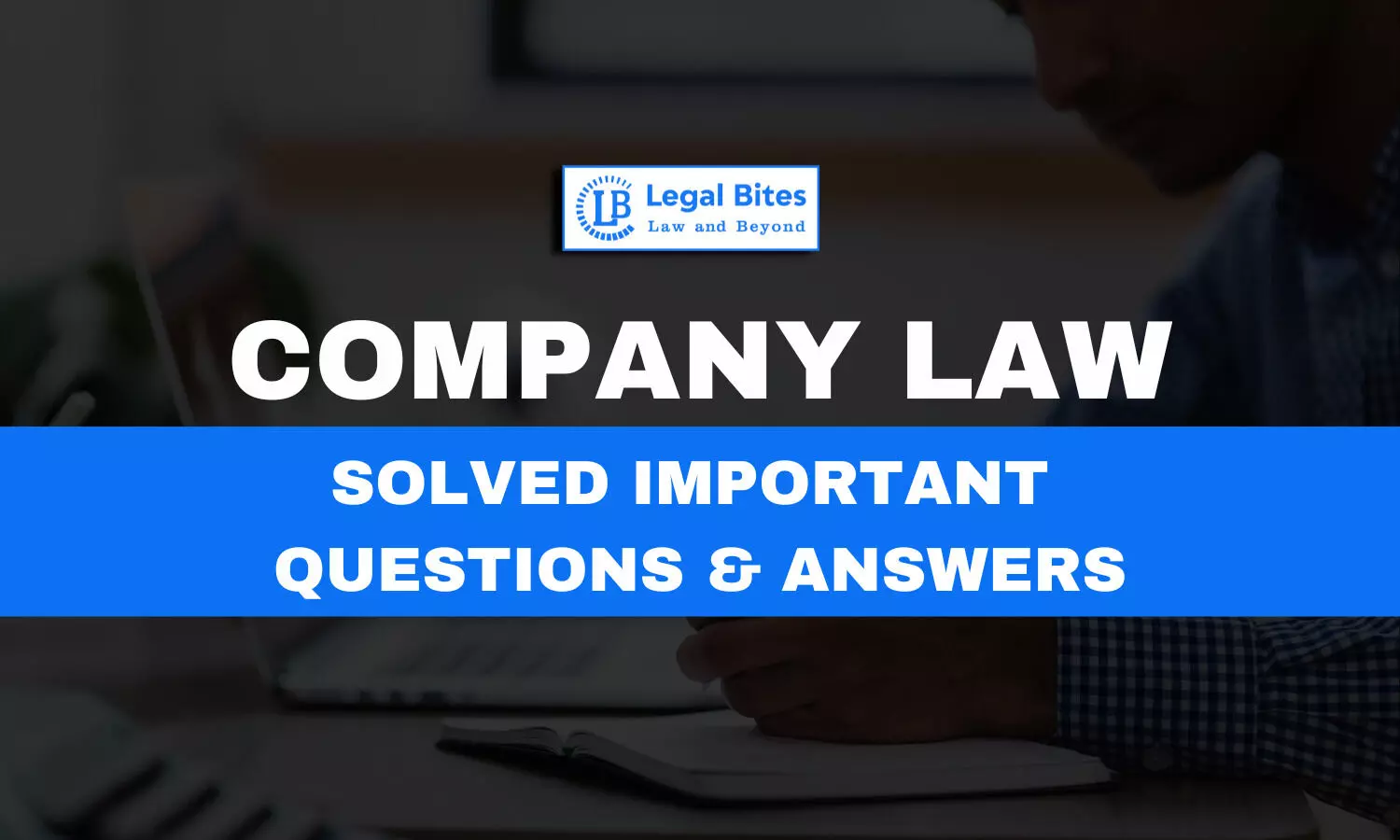Company Law Mains Question Answer Series 4: Important Questions for Judiciary Exams | Part – IV
Legal Bites presents the Company Law Important Question-Answer Series. The questions listed here will help students study for various Competitive and University Exams.;

Legal Bites presents the Company Law Important Question-Answer Series. The questions listed here will help students study for various Competitive and University Exams. Candidates can use Legal Bites' list of questions to help them determine the most important and often asked questions and practice their aptitude and knowledge.
Answering questions is a continuous process that is an inevitable component of any test preparation, as we all know. A well-written response displays not just a candidate's knowledge but also his or her ability to tailor the content to the question's requirements.
It is vital to prepare for this exam to pass it thoroughly. To attain mastery over the subjects studied, applicants only need to keep practising these questions in the months coming up to the examinations. Following it, the candidate's confidence level, as well as their scores, will vastly improve.
Company Law Mains Question Answer Series 4: Important Questions for Judiciary Exams | Part – IV
Question 1
(a) "The object of winding up provisions of Companies Act is to put unsecured creditors upon an equality and pay them pari passu." In the light of the above statement, explain in detail the different modes of winding up of company under Indian Law.
(b) 'Majority will have its way but the minority must also be allowed to have its say.' Discuss with reference to oppression and mismanagement in a Company. [BJS 1986]
Question 2
Write Comments on the following [BJS 1987]:
(i) Transfer and transmission of shares.
(iii) Contribution by a Company to political parties
Question 3
(a) Discuss the positions of company directors.
(b) Under what circumstances can winding up of a company by the Court be possible? [BJS 2011]
Question 4
Distinguish between [BJS 1975]:
i) Shareholder and Debenture Holder
ii) Manager and Managing Agent
iii) Share Certificate and Share Warrant
iv) Holding Company and Subsidiary Company
v) Joint Stock Company and Government Company
Question 5
(b) What is the Prospectus of a Company? What is the effect of misrepresentation in the prospectus? [BJS 1977]
Question 6
Distinguish between debenture and share.
Question 7
Write a short note on ‘Lifting of corporate veil’.
Question 8
Discuss the significance of Corporate social responsibility in a company.
Question 9
Describe the case ‘Salomon v. Salomon and Co. Ltd.

